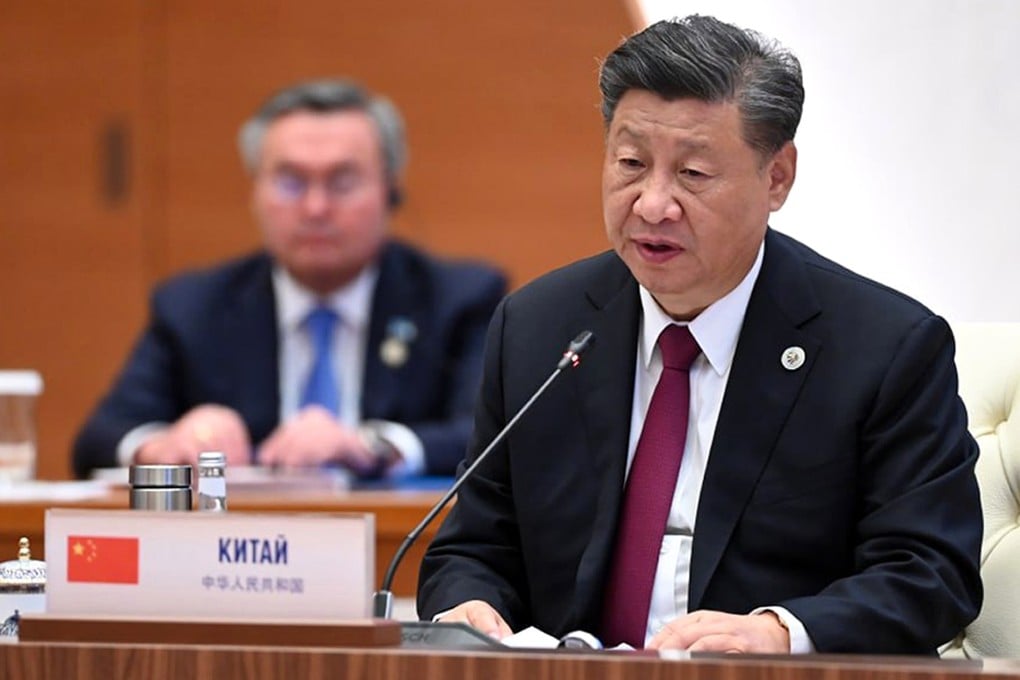SCO summit: China urges member states to ward off foreign-backed ‘colour revolutions’
- Addressing leaders in Samarkand, Xi Jinping says competition between unity and division around the world is growing
- We must jointly oppose interference in other countries’ internal affairs, Xi says

“Faced with the complex situation, we should be clear about the direction of the organisation’s development, deepen cooperation in various fields, and continue to create a favourable environment for the development and growth of member states.”
Addressing leaders from eight member states, including Russian President Vladimir Putin and Indian Prime Minister Narendra Modi, Xi urged countries to prevent foreign forces from instigating “colour revolutions”, popular protests that lead to the downfall of regimes.
“We must jointly oppose interference in other countries’ internal affairs under any excuse, and hold the fate of our countries’ development firmly in our own hands,” he said.
According to Reuters, Xi also said China would train 2,000 law enforcement personnel over the next five years for member countries. But there was no mention of the initiative in the official Chinese statement on the meeting.